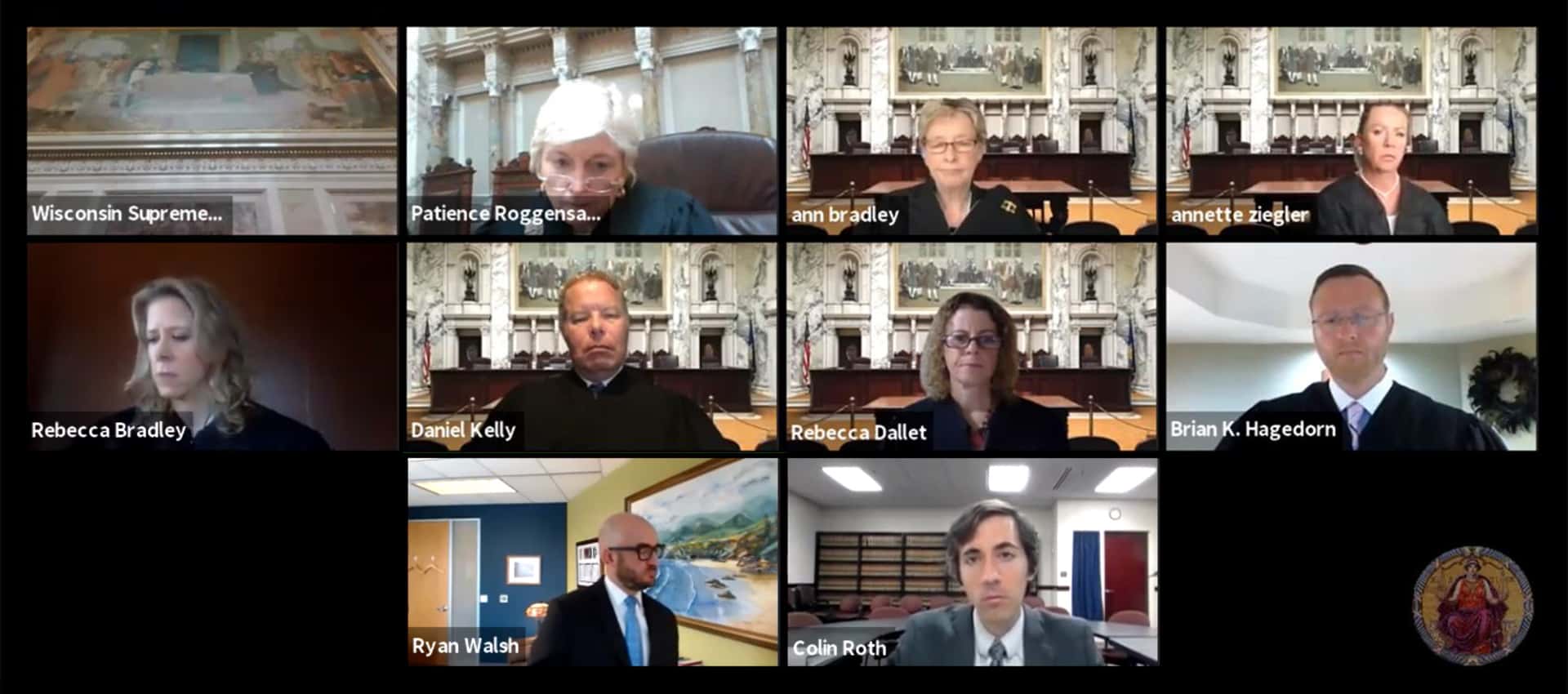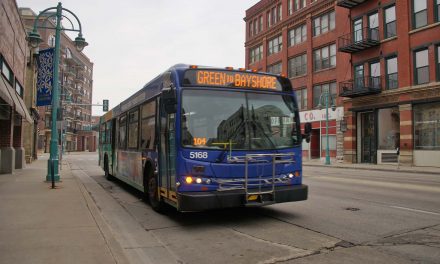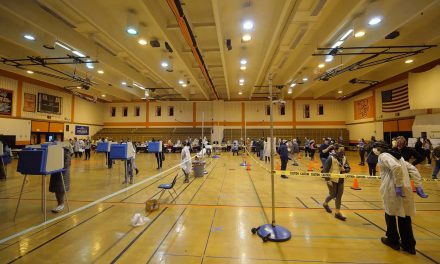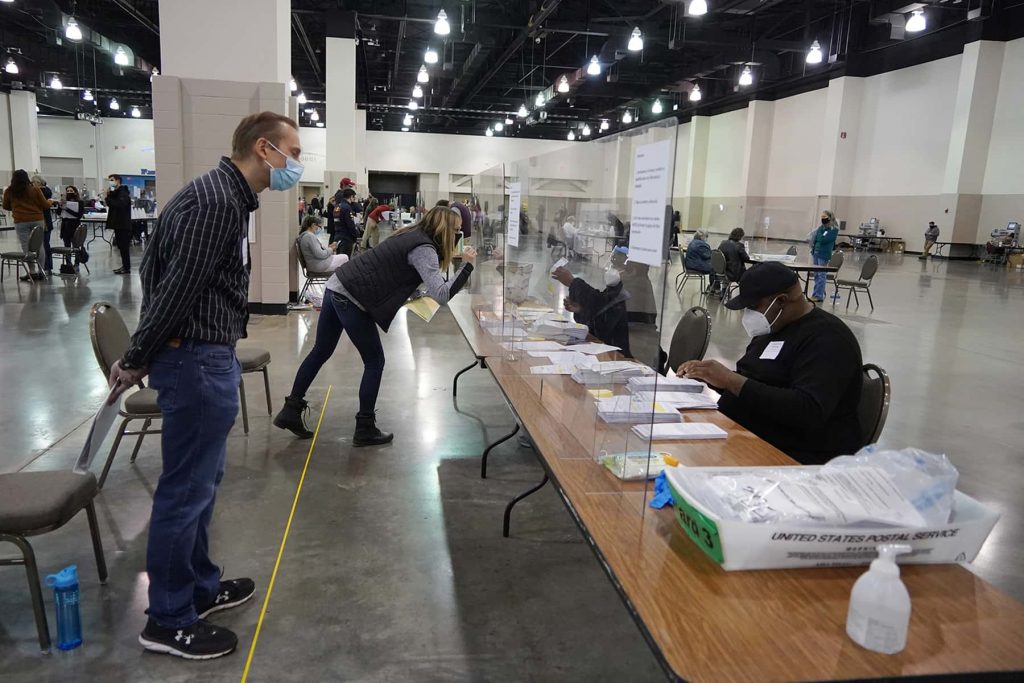
The Wisconsin Supreme Court struck down Governor Tony Evers’ coronavirus stay-at-home order on May 13, ruling that his administration overstepped its authority when it extended the mandate for another month without consulting legislators.
The 4-3 ruling essentially reopens the state, lifting caps on the size of gatherings, allowing people to travel as they please and allowing shuttered businesses to reopen, including bars and restaurants. The Tavern League of Wisconsin swiftly posted the news on its website, telling members, “You can OPEN IMMEDIATELY!”
The decision let stand language that had closed schools, however, and local governments can still impose their own health restrictions. In Dane County, home to the capital of Madison, officials quickly imposed a mandate incorporating most of the statewide order.
Chief Justice Patience Roggensack wrote for the majority that health secretary Andrea Palm’s order amounted to an emergency rule that she does not have the power to create on her own, and also imposes criminal penalties beyond her powers.
“Rule-making exists precisely to ensure that kind of controlling, subjective judgement asserted by one unelected official, Palm, is not imposed in Wisconsin,” Roggensack, part of the court’s 5-2 conservative majority, wrote.
Rebecca Dallet, one of the court’s liberal justices, dissented. She wrote that the court’s decision will “undoubtedly go down as one of the most blatant examples of judicial activism in this court’s history. And it will be Wisconsinites who pay the price.”
Dallet also took aim at the potential delay set up by a rule-making process, writing: “A review of the tedious multi-step process required to enact an emergency rule illustrates why the Legislature authorized DHS to issue statewide orders to control contagion.”
Governor Evers first issued a stay-at-home order in March that closed schools and nonessential businesses. The closures battered the state economy, but Evers argued they were necessary to slow the virus’ spread. The order was supposed to lift April 24, but Palm, an Evers appointee, extended it to May 26.
Republicans asked the Supreme Court to block the extension, arguing that Palm exceeded her authority because the extension amounted to an administrative rule, requiring legislative approval. Evers’ administration countered that state law clearly gives the executive branch broad authority to quickly enact emergency measures to control communicable diseases. Attorney General Josh Kaul also noted that Evers’ order was similar to that in at least 42 other states and has saved many lives.
Nearly seven of 10 Wisconsin residents back Governor Evers’ “Safer at Home” order, based on a Marquette University Law School poll released Tuesday, though that support was down from 86% in March.
Governor Evers’ administration faced an uphill battle in convincing the conservative court to keep the order in place. Three of the conservatives joined Roggensack; the remaining conservative, Brian Hagedorn, joined Dallet and fellow liberal justice Ann Walsh Bradley in dissent.
The Republican legislators had asked the court to let the rule remain in place for six days to give them time to work with Evers’ administration on an alternative plan. The court refused to grant the stay, saying the two sides have had weeks to come up with a plan.
The GOP so far has not offered any alternative solutions. The state’s chamber of commerce has suggested allowing all businesses to open at once while compelling higher-risk establishments and operations to take increasingly strict mitigation measures such as requiring employees to use protective gear.
The GOP move against Governor Evers mirrors actions taken by Republican-controlled legislatures in other states, most notably against the Democratic governors in nearby “blue wall” states Michigan and Pennsylvania. All three are critical presidential battlegrounds in November.
The GOP has been working to weaken Governor Evers’ powers since he ousted incumbent Republican Governor Scott Walker in 2018. During Walker’s final weeks in office, Republicans adopted a set of laws that prohibited Evers from ordering the attorney general to withdraw from lawsuits, a move designed to prevent the governor from pulling Wisconsin out of a multi-state lawsuit challenging the Affordable Care Act. The state Supreme Court has upheld those laws.
The high court also backed Republicans over Governor Evers in the GOP’s insistence on holding in-person voting for April’s presidential primary despite the health risks of the coronavirus.
Written By
Scоtt Bаuеr















